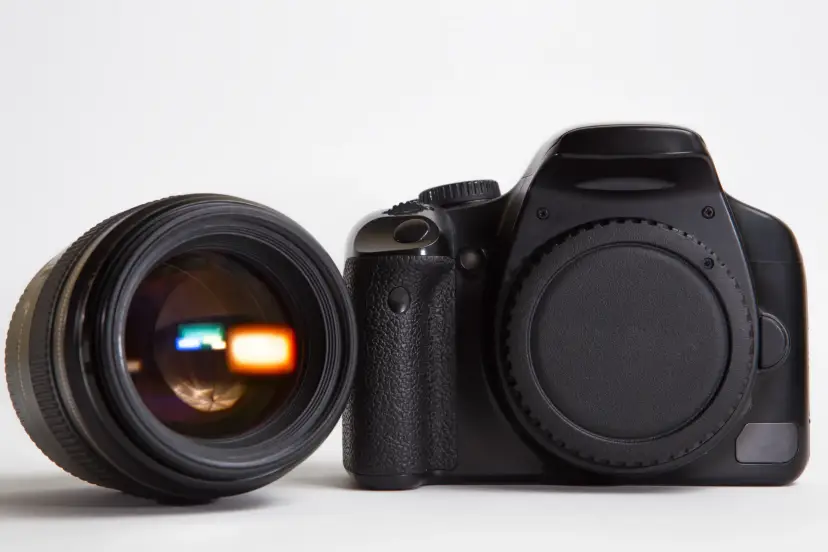Mirrorless vs DSLR: Right Choice for Your Photography Needs?
In this article, we’ll delve into the debate of Mirrorless vs DSLR cameras, helping you understand the differences between the two and make an informed decision based on your photography requirements.
Introduction
Mirrorless vs DSLR cameras represent two distinct categories in the world of digital photography. While both offer advanced imaging capabilities, they differ significantly in design, functionality, and performance.
Size and Weight
One of the most noticeable differences between Mirrorless and DSLR cameras is their size and weight. Mirrorless cameras, as the name suggests, lack the bulky mirror mechanism found in DSLRs, resulting in a more compact and lightweight design. This makes Mirrorless cameras ideal for travel and street photography, where portability is key. However, DSLRs often offer better ergonomics and handling for those with larger hands.
Viewfinder
The choice between electronic viewfinders (EVF) and optical viewfinders (OVF) is another crucial factor to consider. Mirrorless cameras utilize EVFs, which provide a digital representation of the scene in real-time. On the other hand, DSLRs feature OVF technology, offering a direct optical view through the lens. While EVFs offer advantages like exposure preview and focus peaking, some photographers still prefer the optical clarity of OVFs.
Autofocus Speed and Accuracy
Autofocus performance is paramount, especially for fast-paced shooting scenarios. Mirrorless cameras are renowned for their lightning-fast autofocus systems, leveraging advanced phase-detection and contrast-detection technologies. DSLRs, although historically known for their reliable autofocus, may lag behind Mirrorless counterparts in terms of speed and accuracy, particularly in live view mode.
Image Quality
Image quality is a top priority for photographers, and both Mirrorless and DSLR cameras deliver impressive results. However, differences in sensor size can impact overall image quality and low-light performance. While DSLRs typically feature larger sensors, Mirrorless cameras compensate with innovative sensor designs and advanced image processing algorithms, yielding comparable results in many shooting conditions.
Lens Selection and Availability
The availability of lenses is a significant consideration in the Mirrorless vs DSLR debate. DSLRs have been on the market for decades, resulting in a vast selection of native lenses from various manufacturers. Mirrorless cameras, although relatively newer, have rapidly expanded their lens ecosystems, offering a diverse range of native and adapted lenses. Additionally, the adaptability of lenses across different camera systems adds flexibility for photographers.
Battery Life
Battery life is a critical aspect, especially for extended shooting sessions. Mirrorless cameras tend to have shorter battery life compared to DSLRs, primarily due to the continuous power consumption of electronic viewfinders and on-screen displays. However, advancements in battery technology and power management have narrowed the gap, with some Mirrorless models boasting impressive battery life.
Video Features
In recent years, the demand for video capabilities in cameras has surged. Mirrorless cameras are favored by videographers for their advanced video features, such as 4K recording, in-body image stabilization (IBIS), and autofocus tracking. While DSLRs also offer video recording capabilities, they may lack the versatility and convenience found in Mirrorless counterparts.
Ease of Use
User interface and ergonomics play a crucial role in the overall shooting experience. Mirrorless cameras often feature intuitive touchscreen interfaces and customizable controls, allowing for quick adjustments on the fly. DSLRs, with their familiar button layouts and tactile controls, offer a more traditional shooting experience favored by some photographers.
Durability and Weather Resistance
For outdoor and rugged environments, durability and weather resistance are essential considerations. DSLRs are renowned for their robust build quality and weather-sealed bodies, providing protection against dust, moisture, and extreme temperatures. While some Mirrorless cameras also offer weather sealing, they may not be as rugged as their DSLR counterparts.
Price
Price is a significant factor for many photographers in the Mirrorless vs DSLR debate. While Mirrorless cameras initially carried a premium price tag, advancements in technology have made them more affordable in recent years. DSLRs, particularly older models, can often be found at lower price points, making them a budget-friendly option for entry-level photographers.
Adaptability and Future-Proofing
As technology continues to evolve, adaptability and future-proofing become crucial considerations. Mirrorless cameras, with their electronic components and firmware updates, are more adaptable to emerging trends and advancements in camera technology. Additionally, the rise of mirrorless systems has prompted manufacturers to innovate and develop new technologies at a faster pace.
My Recommendation
Ultimately, the choice between Mirrorless and DSLR cameras boils down to personal preferences, shooting style, and budget. For photographers prioritizing portability, advanced autofocus, and video capabilities, Mirrorless cameras offer a compelling choice. Conversely, DSLRs may appeal to those seeking robust build quality, extensive lens selection, and optical viewfinders.
>>> See the full range of mirrorless cameras CLICK HERE <<<
>>> See the full range of DSLR cameras CLICK HERE <<<
Conclusion of Mirrorless vs DSLR cameras
In conclusion, the debate of Mirrorless vs DSLR cameras is multifaceted, with each system offering unique advantages and drawbacks. By considering factors such as size and weight, viewfinder technology, autofocus performance, image quality, lens selection, battery life, video features, ease of use, durability, price, adaptability, and future-proofing, photographers can make an informed decision based on their specific needs and preferences.
FAQs for Mirrorless vs DSLR
1. Are Mirrorless cameras better than DSLRs?
• Both Mirrorless and DSLR cameras have their strengths and weaknesses, so it ultimately depends on the individual photographer’s needs and preferences.
2. Do Mirrorless cameras have smaller sensors than DSLRs?
• Not necessarily. While some Mirrorless cameras may have smaller sensors compared to full-frame DSLRs, others feature comparable or even larger sensor sizes.
3. Can I use my existing DSLR lenses with a Mirrorless camera?
• Yes, many Mirrorless cameras offer adapters that allow you to use DSLR lenses with full functionality, although autofocus performance may vary.
4. Are Mirrorless cameras more suitable for video recording than DSLRs?
• Generally, Mirrorless cameras offer more advanced video features and capabilities compared to DSLRs, making them a preferred choice for many videographers.
5. Which is more future-proof: Mirrorless or DSLR?
• Mirrorless cameras are often considered more future-proof due to their electronic components and adaptability to emerging technologies. However, DSLRs still have their place in the market and will remain relevant for years to come.
Further Reading
Check out our other relevant articles:
Macro Photography: A Beginner’s Guide to Capturing Tiny Wonders
- Digital Photography School – This website provides comprehensive guides, tutorials, and articles covering various aspects of digital photography, including comparisons between different camera types such as Mirrorless and DSLR. Digital Photography School
- DPReview – DPReview is a reputable platform known for its in-depth camera reviews, comparisons, and photography-related content. They often publish insightful articles discussing the pros and cons of different camera systems, including Mirrorless and DSLR. DPReview





Comments are closed.